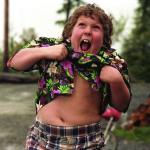 Mezla PigDog, on 30 October 2020 - 10:40 PM, said:
Mezla PigDog, on 30 October 2020 - 10:40 PM, said:
I've been wondering what's going to happen if we don't get a vaccine. Or even if we do get one I guess as we will probably have to have regular boosters and as individuals get weaker and/or older they will be less effective. There is unlikely to be a "cure" with current technology.
Children around now will probably react to covid-19 like the common cold for the rest of their lives so it's a question of roughly what age is the oldest cohort to be "safe". Then how to long term "protect" everyone above that. In species terms it's the tiniest blip and we're potentially trashing future generations chances by causing large degrees of economic harm and taking our eyes off other problems to focus on this.
I don't advocate leaving people to die but the hindsight stuff from this is going to be fascinating. It will be interesting to see if the economic sacrifices are worth it - as in the burden left behind for younger people caused by trying to protect a generation who will be dead either way eventually.
A big part of the issue is that many of the economic and health consequences are occurring because of failures of government and failures of the population at large. Places that had past poor experiences with SARS and MERS, and where things like mask wearing and frequent hand sanitation are the norm, have seen much less impact than most of Europe and North America. Taiwan and Singapore for example. Japan is in a similar situation, absent the previous past experiences as it wasn't hit very hard by SARS or MERS iirc. Robust contact tracing programs which the populace willingly participate in are also a big part of the difference. If governments were sensible with restrictions/recommendations, put in the effort to establish proper protocols and contact tracing, and the population followed the guidelines, the economic impact would be much less in most sectors (tourism is toast either way).
With the Spanish flu it was seen, at least in the US, that those places that had the most restrictions and knocked the infection rates down the most were also the ones with the highest rates of economic growth in the following years. The idea of letting things run rampant that some espouse to keep the economy open is nonsense. The economy won't function until people are willing to partake in it, which means reducing transmissions and risk to a level the majority are willing to tolerate. Parts of North America essentially sacrificed in person schooling for part of the year by allowing bars and nightclubs to reopen, knowing people aren't going to follow any health guidelines there, which was borderline insane IMO. The anti-mask stuff is off the charts insane.
The longer term economic consequences are difficult to foresee and I expect to be different from most recessions. E.g., some of the industries hit hardest by Covid restrictions are not ones most people plan on making a career in, so the low wage effect for people starting a career might not be as evident. Some of the zombie retail companies have finally gone under (JC Penny, Neiman Marcus), but government aid has helped prop up the zombies in other industries. The recent oil field consolidations absorbed a few in that segment, but another wave of bankruptcy filings/industry consolidation over the next year wouldn't surprise me.
For hospitality, one of the things I have wondered all along is whether habits would change. For example, locally a lot of the restaurant business relies on people going out for lunch at work, or dinner after work. That stopped for a significant length of time. It only takes a couple weeks of doing something for it to become a habit. Have the people who used to go out for lunch all the time gotten used to packing a lunch? Especially if they go over their bills and realize how much money they were saving? Brick and mortar retail is in the same boat, as many people who did not shop online regularly have started doing so.
Mid to long term environmental consequences, that Azath sort of brought, up are hard to predict too. I think much of the change right now can be attributed to the economic slowdown in general. More people are working from home (probably good) and more interactions are occurring online instead of people travelling (definitely good). I've had ten times more meetings in Teams than in person this year. I don't expect that to continue for all meetings. But, now that people have gotten used to meetings online, I doubt I will have any more days where it is fly in somewhere, have a meeting and fly out. Local in person meetings will come back. At the same time, transit ridership is way down. Basically, many people who previously took transit to work but could afford to drive, and are still working from the office, are now driving to avoid being around others. Does that become habit, or does it revert once Covid is under control? Unlike packing a lunch, driving to work costs more, so maybe it reverts. I have no idea.
I know that wasn't all addressed at your post (probably only the first paragraph), but I've had lots and lots of thoughts about Covid and what long term changes it might cause, so decided to post some of it.
 Mezla PigDog, on 29 October 2020 - 10:17 PM, said:
Mezla PigDog, on 29 October 2020 - 10:17 PM, said:
 Help
Help






















